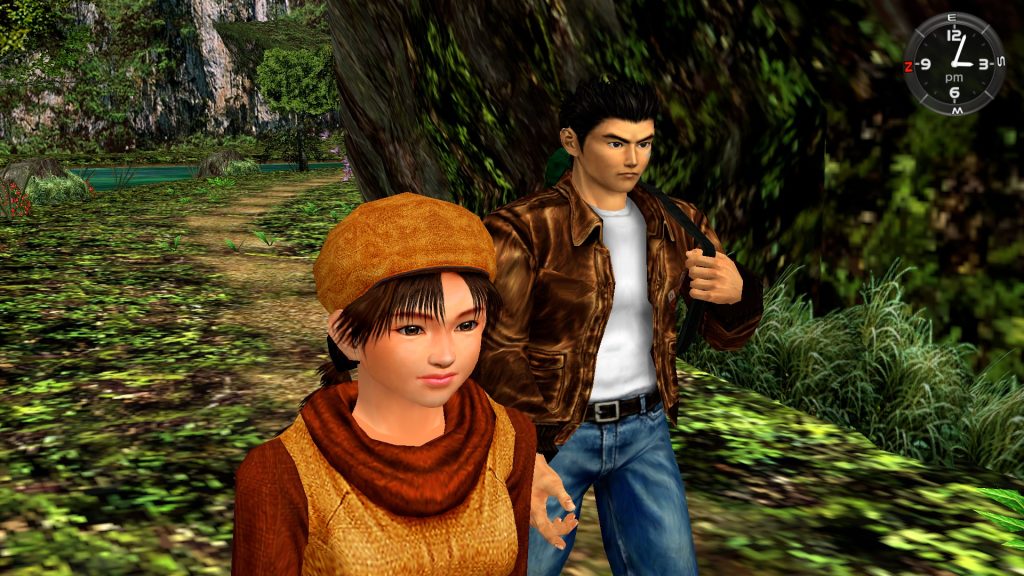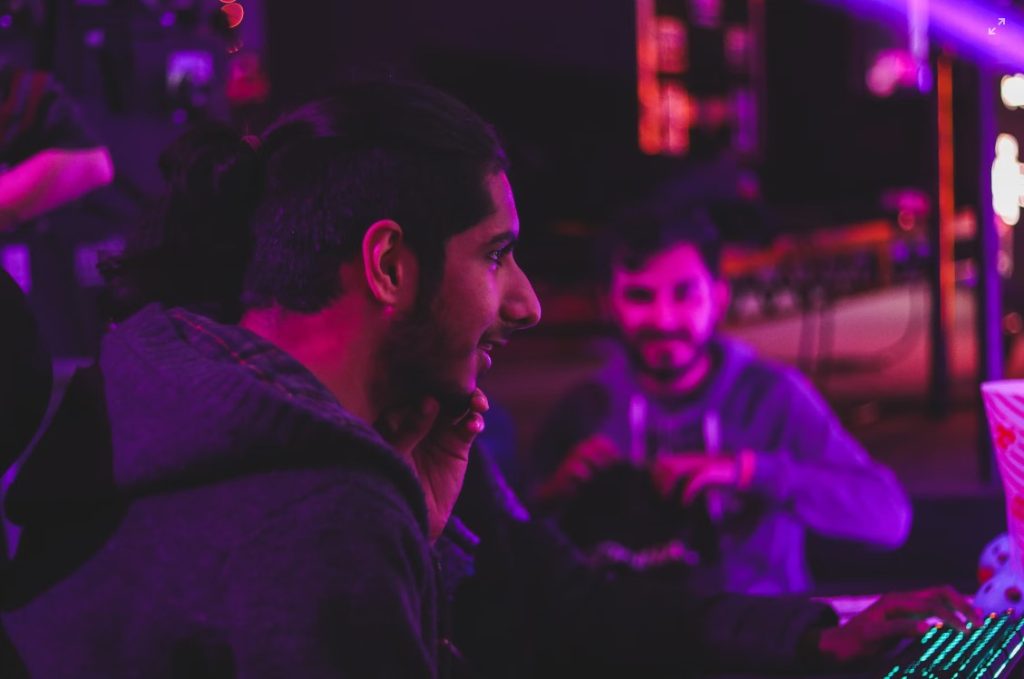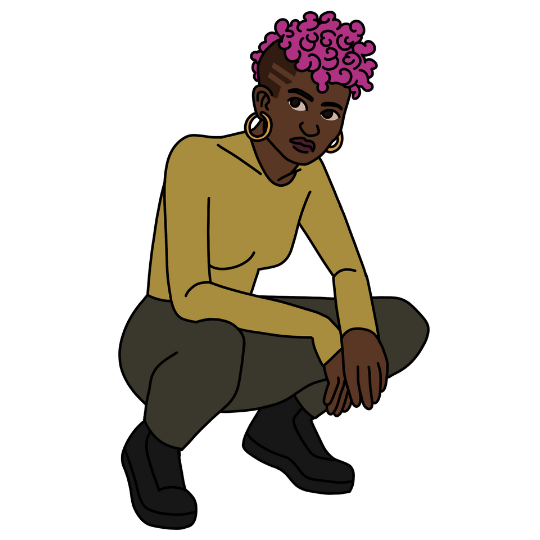ADHD & Gaming: How Neurodiverse Gamers are Connecting & Creating Positive Spaces
Posted: 14 Sep 2023Before discovering I had ADHD, I thought I was alone in my quirks and how I socialise. But my experiences were more universal than I realised.
Gaming has evolved to be more than an experience shared alone. In the world of media, video games are unique in how they foster a sense of community and connection. They have been bringing us together for decades both in and outside of the game, and giving neurodiverse minorities a sense of belonging.
Since my ADHD diagnosis in my late twenties, I have come across so many other ADHDers with similar experiences to my own, many of those through the gaming sphere both in fan communities and the industry.
I wanted to learn more of others’ experiences and with their permission, share these along with my own to give others a wider understanding of how inclusive groups and communities leave an impact on us and to help other neurodivergent gamers feel seen and welcome. I talked to a few different neurodivergent voices inside the games industry and in gaming communities, to hear about different experiences.
My Personal ADHD Gaming Experience
Video games have been a part of my life for as long as I can remember. My earliest memories of playing games as a child are from playing Sonic R on the Saturn in my brothers’ room, or playing Theme Park for the SNES in the evenings after dinner. I loved games that were quick to get through.
However, as I got older I gravitated towards more narrative driven games like Shenmue and Kingdom Hearts, as in-depth characters and stories became a huge aspect that I loved focusing on and getting lost in.

My early teens were when I first recognised the impact that ADHD had on my life, although I was unaware of the name of it at the time. My experience of ADHD centres around my struggle to focus, regulating my emotions and managing hyperactivity, but a key feature of my neurotype is hyperfixation.
Hyperfixation is when we get intensely immersed in an interest, and focus a lot on that interest which could be a game or specific aspect within said game. We will spend a lot of time thinking or engaging with it and often spend a lot of our energy on it more than other things. Hyperfixation can definitely be a bother when you need to focus on general tasks or work, it can lead to us neglect basic needs if left to fester for long enough.
For me, hyperfixation is a big part of my ADHD and life. I’d hyperfixate on my favourite games and characters, it feels like it has always been present even if I didn’t always have a name for it. Wanting to talk for hours about why a certain game narrative is the best one ever – even if no one else wanted to hear it! Thinking about my favourite games and wanting to dissect them with my friends and family for an absurd amount of time made me inexplicably happy. Even so, I felt isolated and lonely because no one else around me seemed to experience this same kind of passion.

Unmasking in my Community
Growing up I was constantly masking my hyperfixations as to not seem “weird” or “obsessed” to the people around me, especially friends. I even hid a lot of my “nerdy” interests from friends at the time for fear they would no longer like me. But now, I view my hyperfixation trait as also a positive as well as a sometimes hindrance. When managed it helps boost my creativity in huge ways, and my favourite stories can motivate me to work harder or find the confidence to finally reach goals.
This is where becoming involved in fandom communities helped me feel a little more “normal”. Somewhere I could meet others that had the same hyperfixations and intense passion for games, stories, characters as I did which gave me a sense of comfort (even well before knowing I had ADHD).
When I started writing this I wanted to hear about how other gamers with ADHD have found safe spaces/communities within gaming where they can be themselves and ways in which they have also helped them find inclusivity to see if some of us have similar experiences, and a few people were happy to share those personal experiences and comfortable for me to include here.
The Covid-19 Pandemic
During lockdown, many struggled to find interaction through their usual means. There was also a big increase in loneliness due to the loss of socialising opportunities. One person noted that “it gives us a relatively safe space to connect and participate in something we love together which has been extra challenging to find since 2020” when talking about more active online gaming communities.
Those that regularly engaged in digital communities found comfort in their regular spaces or were able to find new ones as a welcome distraction from the stress of what was happening in the world. Online spaces are often one where neurodiverse people feel comfortable engaging due to the lack of need for instant response and navigation of social cues.

Social Anxiety and Sensory Overload
Another commented that “in-person events can be overwhelming between the sensory overload and navigating social nuances”. Neurodivergent people frequently struggle with social gatherings. Our social batteries can run out a lot quicker as we often mask – where you hide your neurodivergent traits and camouflage with the neuromajority. We often need to process information faster than we are able, as well as deal with a multitude of distractions, and potential sensory overload.
Having online games communities and events can offer interaction in a way that is comfortable and doesn’t put neurodivergent people under as much pressure. It offers gamers a place in which we can find others who share similar interests. and favourite games, but also those with similar experiences with ADHD. Overall it gives us more time to process, and we’re less likely to misunderstand social cues. There are potentially less distractions, and we are able to remove ourselves from the space instantly if we get overwhelmed.
Rejection Sensitive Dysphoria
But what happens when we don’t have a space that is made accessible and comfortable for us? Not only will events and communities miss out on amazingly creative neurodivergent people, but it can have a huge effect on ADHD folk that experience RSD (Rejection Sensitive Dysphoria).
Those with ADHD tend to feel things a lot more intensely than most people which can have an impact both physically and mentally. RSD can cause intense deep emotional and even physical pain caused by criticism or rejection. This can even include missing out on things, such as an event you were really excited about, or when you are suddenly unable to attend if you are sick or too anxious. But it can hit incredibly hard when we try to connect with others over a mutual interest, but are left out or judged by others.
It can cause us anxiety, to overthink, and tear ourselves down for not being able to interact in ways that others find easy. Creating spaces and especially online versions of events can help to make us feel included and acknowledged, and it gives us visibility to others.
How do ADHD Gamers Thrive in Games Communities?
When speaking about the benefits of games communities with other neurodivergent people another comment shared was “what I love most about gaming communities is the acceptance and understanding that flourishes with them. ADHD traits like hyperfocus and intense interests are not only embraced but celebrated”. Something that I myself have found to be true!
I’ve met many ADHD gamers through fan communities online and have interacted with them over our favourite games in a way that is true to me, without masking the hyperfocus or huge love I have for the media! Others will react with the same level of passion and interest which helps me feel comfortable and in safe company. From this, I have made some amazing friendships and great memories from both communities or in the games themselves.
Becoming More Accessible
The creation of online spaces for neurodivergent gamers has shown to leave us with positive inclusive experiences where we can be ourselves, but we don’t want online to be the only place where these exist.
We don’t always want to be constrained to our homes and a screen in order to meet other like-minded gamers. So what else can be done to make an ADHD-friendly space?

More events focused solely on neurodivergent gamers is always a good place to start. Creating a place where you know straight off the bat you’ve landed somewhere you can feel acknowledged and safe is a great way to have us feel seen and limit potential anxieties.
When it comes to in-person events, especially events in large venues or that have a high attendance, creating dedicated areas or rooms that allow neurodivergent people to take a break and regulate can make the event far more accessible. This will allow more neurodivergent people to attend and participate – maybe even meet more people like themselves!
All Communities Great and Small
But to any that find stepping into an established unknown space might be too much for them, setting up your own little game community whether it’s an ADHDer-focused guild in an MMO, a Discord server where you connect over your favourite game character, or organising a game tournament for neurominorities (either on or offline), can all be amazing ways to create your own little safe community.
Ultimately, feeling included and most of all wanted in the communities we take part in, can have a long-lasting worthwhile effect on us – especially for our mental health! It leads us to form friendships we may never have found otherwise and offers us amazing opportunities that may have been inaccessible before!
But most of all? We simply get to enjoy our love of gaming in a way that is true to ourselves – without any fear!
Written by Kelly Sellers (she/they)

